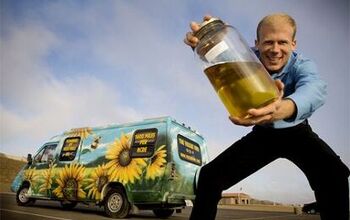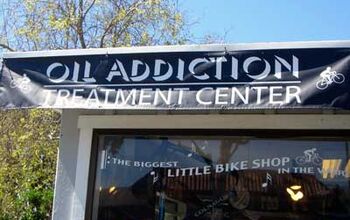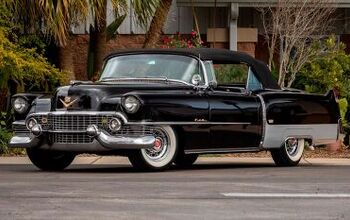Editorial: The Truth About Fuel, Part Two: Meths!
Biologist Jared Diamond once wrote that the worst mistake in the history of the human race was adopting agriculture. It allowed a greater population compared to hunter-gatherers, but at the expense of increased vulnerability to disease, pests and warfare. Diamond underestimated humanity’s capacity for blunder, for an even bigger mistake was tying our transportation system to petroleum.
Whether we’re talking about wheat or oil, more energy means more people leading better lives. But in each case, it also means centralizing authority and becoming dependent upon a complex and easily disrupted infrastructure. Nuclear and aerospace engineer Robert Zubrin thinks it’s time we undo the damage and diversify humanity’s energy diet. Zubrin’s book Energy Victory: Winning the War on Terror By Breaking Free of Oil describes how we can get there.
The key to the problem, especially for us pistonheads, is compatible fuels. Electric power plants can burn coal, natural gas, wood, municipal garbage, or a variety of other things. Industrial applications have a similar suite of possible alternatives. But when it comes to cars, there’s no Tiger in the Tank quite like liquid hydrocarbons, and those come almost exclusively from oil.
Fortunately for oil-poor countries, such as the USA, dead dino juice is no longer essential to fuel our vehicles. All we need is carbon, water, some well-known chemistry, and a little ingenuity.
The centerpiece of Zubrin’s strategy is methanol; the undrinkable single-carbon IndyCar-fueling brother of ethanol. Ethanol does have its advantages, and Zubrin is in favor of appropriate ethanol production, but methanol can be made from a far wider variety of sources.
Any form of carbon (from coal, natural gas, garbage, biomass, etc.) can be reacted with steam to form a mixture of carbon monoxide (CO) and hydrogen called synthesis gas (syngas). Put the syngas under the proper conditions and the molecules combine to make methanol.
Methanol, in addition to being a fuel, is also a building block. Similar chemistry can be used to turn methanol into ethanol, dimethyl ether (a clean-burning diesel fuel), and ethylene (the basic molecule of plastics production). None of this involves extreme temperatures, high pressures or exotic catalysts.
The naysayers will quickly point out, “But we can’t run our cars on methanol . . . .” Sure we can. Zubrin documents that Ford was selling methanol-fueled Escorts to the California state government back in 1986. Methanol-compatible flexible-fuel vehicles (FFVs) were sold in the US up to 1999, and there are millions of FFVs in Brazil, the USA, and Canada that can run on gasoline-ethanol blends.
Recent developments in engine technologies make alcohol fuels even more attractive. We’ve come a long way since Ford modified its first-generation EFI system to be methanol-compatible. Imagine what can be done today with computer controls of direct fuel injection, variable valve timing, variable vane turbochargers, multi-stage intake manifolds and the like. These can all be tuned to take advantage of the 100+ octane rating of alcohol fuel blends without compromising the ability to run on regular gasoline.
Unfortunately, the US government has to date dropped the ball in the regulatory arena. Instead of mandating flex-fuel compatibility, thereby leveling the playing field for gasoline and alcohol blends, Congress has only provided a CAFE incentive for FFVs. Naturally, automakers have responded to this incentive by exploiting the CAFE credits while providing a minimal range of FFVs. In 2008, Congress did consider legislation which would have mandated car makers’ sales be 50% FFVs in 2012 and 80% FFVs in 2015, but they failed to pass legislation.
There are many reasons, as Zubrin argues, for implementing alcohol-based transportation fuels and few reasons to oppose it. It’s already working in countries like Brazil, the technology is available and inexpensive, and there are many economic, political, and environmental benefits.
Zubrin sees breaking OPEC’s economic and political influence as the primary benefit of alcohol fuels. Local production keeps money local, rather than flowing into OPEC’s coffers. Given that OPEC nations finance terrorist organizations, stopping this money stream implies defunding those organizations, which is the “energy victory” Zubrin seeks.
On the environmental front, Zubrin sees alcohol fuels as a way of increasing (yes, increasing) carbon dioxide (CO2) production. Getting the impoverished world out of poverty implies increasing its energy use, which implies more CO2. Doing so by American-style petroleum use means quintupling atmospheric CO2, while using alcohol fuels keeps global warming out of the picture.
Zubrin’s thesis is compelling, but he does occasionally gloss over some objections. For example, he focuses on alcohol chemistry but neglects known transportation and storage issues. Similarly, he discusses the energy potential of ethanol crops, but neglects the water, soil and fertilizer inputs required.
Finally, while the methanol-based economy may be a good short-term strategy, it’s only a way of stretching fossil fuels, not eliminating them altogether. In our next installment, we’ll consider another approach that may solve our long-term fuel issues.
More by Eric Stepans
Latest Car Reviews
Read moreLatest Product Reviews
Read moreRecent Comments
- Jkross22 When I think about products that I buy that are of the highest quality or are of great value, I have no idea if they are made as a whole or in parts by unionized employees. As a customer, that's really all I care about. When I think about services I receive from unionized and non-unionized employees, it varies from C- to F levels of service. Will unionizing make the cars better or worse?
- Namesakeone I think it's the age old conundrum: Every company (or industry) wants every other one to pay its workers well; well-paid workers make great customers. But nobody wants to pay their own workers well; that would eat into profits. So instead of what Henry Ford (the first) did over a century ago, we will have a lot of companies copying Nike in the 1980s: third-world employees (with a few highly-paid celebrity athlete endorsers) selling overpriced products to upper-middle-class Americans (with a few urban street youths willing to literally kill for that product), until there are no more upper-middle-class Americans left.
- ToolGuy I was challenged by Tim's incisive opinion, but thankfully Jeff's multiple vanilla truisms have set me straight. Or something. 😉
- ChristianWimmer The body kit modifications ruined it for me.
- ToolGuy "I have my stance -- I won't prejudice the commentariat by sharing it."• Like Tim, I have my opinion and it is perfect and above reproach (as long as I keep it to myself). I would hate to share it with the world and risk having someone critique it. LOL.

































Comments
Join the conversation
You can manufacture methanol using an energy source and atmospheric CO₂. Say, nuclear power. So we have a carbon-neutral energy medium. You can manufacture plain old gasoline the same way, for that matter. I'm not sure how gasoline compares to methanol, but at least we aren't dealing with H₂.
Last time I checked, the main ingredient in the "blue" windshield washer fluid (aka "monkey pee") is methanol, true? Drinking the stuff is a BAD IDEA afaik.